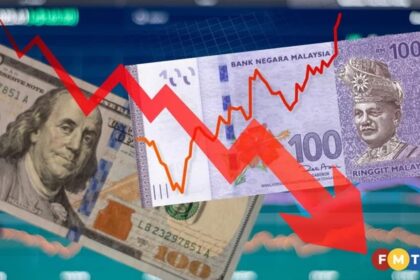Chinese Investment and the Golden Visa: Transforming Athens and Greece
In the heart of Athens, the influence of Chinese investment is visible in both subtle and striking ways. Authentic Chinese restaurants now line the city’s central streets, their patrons often speaking northeastern Chinese dialects and working for major firms like China Ocean Shipping Company, which manages the Port of Piraeus—Europe’s fifth-largest port. Yet, the most profound transformation is happening behind closed doors, as thousands of Chinese nationals purchase apartments and homes, reshaping the Greek capital’s real estate market through the country’s Golden Visa program.
- Chinese Investment and the Golden Visa: Transforming Athens and Greece
- What Is Greece’s Golden Visa Program?
- How Has Chinese Investment Changed Athens?
- Regulatory Backlash: Greece Tightens the Golden Visa Rules
- Fraud, Scams, and Regulatory Concerns
- Broader Implications: Greece as a Magnet for Global Wealth
- In Summary
The Golden Visa, a residency-by-investment scheme, has become a magnet for Chinese investors seeking a European foothold, asset diversification, and a secure future for their families. As the program evolves, it is sparking debate over its economic benefits, social consequences, and the regulatory challenges it presents for Greece and the broader European Union.
What Is Greece’s Golden Visa Program?
Launched in 2013, Greece’s Golden Visa program offers five-year renewable residence permits to non-EU nationals who invest a minimum amount in Greek real estate. Initially set at €250,000 (about $270,000), this threshold was the lowest in Europe, making the program particularly attractive compared to similar schemes in Portugal, Spain, and Malta. The permit covers the investor and their immediate family, granting them the right to live in Greece and travel visa-free across the Schengen Area.
For many Chinese citizens, the Golden Visa is more than a travel document—it is an escape plan. The COVID-19 pandemic, with its strict lockdowns in China, prompted a surge in interest as wealthy and middle-class families sought greater personal freedom, educational opportunities, and a hedge against future uncertainty. By June 2025, nearly 8,000 Chinese citizens were first-time Golden Visa holders, representing almost half of all new permits. Among those renewing their visas, 61% were also Chinese, according to the Greek Ministry of Migration and Asylum.
Why Is Greece So Attractive to Chinese Investors?
Several factors explain the overwhelming Chinese interest in Greece’s Golden Visa:
- Affordability: Greek real estate is significantly cheaper than in major Chinese cities, making it accessible for middle-class investors.
- European Access: The Golden Visa grants residency rights and visa-free travel across the Schengen Area, a major draw for business and leisure.
- Family Security: The program covers immediate family members, offering educational and lifestyle opportunities in Europe.
- Economic Opportunity: Investors can profit from property appreciation and rental income, especially in Athens and popular islands.
- Diplomatic Ties: China and Greece have strong economic links, exemplified by Chinese investment in the Port of Piraeus and other infrastructure projects.
As one expert from InvestmentVisa.com explained, “The Greece Golden Visa stands out as a practical and valuable option for Chinese citizens seeking asset diversification, European residency, and a secure future.”
How Has Chinese Investment Changed Athens?
The influx of Chinese capital has left a visible mark on Athens. Beyond the proliferation of Chinese businesses and restaurants, the city’s property market has undergone a dramatic transformation. Chinese buyers have snapped up thousands of flats, particularly in central Athens and the southern suburbs—areas like Kallithea, Nea Smyrni, Paleo Faliro, and Piraeus are especially popular.
According to To Vima, Chinese nationals accounted for 6,521 of the 7,052 Golden Visa applications in the first ten months of 2024. Since the program’s inception, over 16,800 residence permits have been granted, with Chinese investors making up the majority. This surge has contributed to a property-buying frenzy, driving up prices and rents, and making affordable housing increasingly scarce for locals.
Market experts warn that the Golden Visa program has contributed to the “touristification” of urban centers and popular islands, as many foreign buyers acquire properties for lucrative short-term rentals (such as Airbnb) rather than residential use. Property prices in Greece have soared by 69% from 2017 to mid-2024, according to the OECD, with rents in Piraeus jumping more than 14% in just one year.
Economic Benefits and Local Challenges
There is no doubt that the Golden Visa program has brought significant economic benefits to Greece. The scheme has generated billions in investment—€2.54 billion in 2023 alone, and an estimated €3 billion in 2024. Chinese investments have also created thousands of jobs and revitalized neighborhoods that were previously in decline.
However, the rapid influx of foreign capital has also fueled a housing crisis. Locals, especially young Greeks and families, find it increasingly difficult to buy or rent long-term housing in central Athens and other prime areas. As one resident near the Acropolis told VOA News, “Finding an affordable apartment has become almost impossible. Prices have gone up so much that only foreigners or investors can afford them.”
Regulatory Backlash: Greece Tightens the Golden Visa Rules
In response to mounting public pressure and the housing crisis, the Greek government has moved to tighten the Golden Visa program. In 2024, Prime Minister Kyriakos Mitsotakis announced a sharp increase in the minimum investment threshold for real estate in high-demand areas—from €250,000 to as much as €800,000 (about $862,000) in central Athens, Thessaloniki, Mykonos, and Santorini. The goal is to “shield the local market” and ensure that the program benefits the broader economy, not just foreign investors.
Opposition leaders and housing advocates have also called for stricter rules to prevent foreign buyers from using properties exclusively for short-term rentals, which exacerbates the housing shortage for Greeks. The government is considering additional measures to regulate the market and protect residents from further price hikes.
Impact on Investor Behavior
The announcement of higher investment thresholds triggered a rush among international buyers—especially Chinese investors—to secure properties before the new rules took effect. This “buying spree” further drove up prices in key regions, with Piraeus seeing a 28.9% increase in average property values in just one year.
As the rules become stricter and the minimum investment rises, the character of Chinese investment is shifting. According to eKathimerini, smaller investors are being replaced by wealthier individuals and even Chinese investment companies. These new entrants are interested not just in apartments for residency, but in larger projects such as holiday homes, student housing, logistics, and tourism developments across Greece, including cities like Ioannina, Patra, and Thessaloniki.
Fraud, Scams, and Regulatory Concerns
With the surge in demand and the rapid flow of money, the Golden Visa program has also attracted fraudsters and criminal networks. Greece’s Anti-Money Laundering Authority has uncovered several cases of irregularities, particularly involving Chinese investors. Some buyers were lured into pyramid schemes, paying inflated prices for properties or, in some cases, for homes that were never delivered.
Investigations have revealed networks of real estate agents, law firms, and intermediaries who exploited Chinese buyers by inflating property values and pocketing the difference. In one case, properties worth €100,000 were sold for €250,000—the official threshold for the visa—with the excess split among the intermediaries. Some victims lost their life savings, and there have been reports of suicides linked to failed investments.
Alexander Varnavas, a Greek law firm partner, explained, “Such scams are common in real estate globally and not unique to the Golden Visa program. The key is due diligence—investors should always work with independent, regulated law firms rather than agents connected to sellers.”
In response, Greek authorities have tightened oversight, increased the minimum investment, and launched investigations into the sources of funds used for property purchases. The government aims to protect both investors and the integrity of the program, while the European Union is also considering stricter controls on residency-by-investment schemes across member states.
Broader Implications: Greece as a Magnet for Global Wealth
The Golden Visa program is just one facet of Greece’s growing appeal to the world’s ultra-rich. According to the Henley Private Wealth Migration Report 2025, Greece ranks among the top ten destinations for high-net-worth individuals, with the Athenian Riviera and Cyclades islands experiencing a surge in luxury property purchases. The country’s natural beauty, cultural heritage, and favorable tax policies make it a beacon for those seeking a Mediterranean lifestyle and financial security.
Globally, over 142,000 people with assets exceeding $1 million are relocating in 2025, including thousands with fortunes over $30 million. Many are investing in multiple properties across continents, using real estate as both a financial safeguard and a lifestyle choice. Greece’s competitive investment programs, including the Golden Visa, are fueling demand for high-end properties and transforming local markets.
Comparisons and Future Trends
Greece’s Golden Visa program stands out for its relatively low entry threshold (even after recent increases) and its straightforward application process. While Portugal has discontinued its real estate option and other countries have tightened their rules, Greece remains a top destination for those seeking EU residency through investment.
However, the future of the program is uncertain. EU authorities are pushing for more unified standards and greater oversight to prevent money laundering and abuse. Greece’s recent reforms may set a precedent for other countries, leading to a more selective and regulated market for residency-by-investment schemes.
In Summary
- Chinese investors have become the dominant force in Greece’s Golden Visa program, accounting for nearly half of all new permits and over 60% of renewals.
- The influx of Chinese capital has transformed Athens’ real estate market, driving up property prices and rents, and contributing to a housing crisis for locals.
- Greece has responded by raising the minimum investment threshold in high-demand areas and tightening regulations to curb abuse and protect the housing market.
- Fraud and scams have targeted Chinese investors, prompting investigations and calls for greater oversight and due diligence.
- The Golden Visa program has brought significant economic benefits to Greece but also sparked debate over its social and regulatory consequences.
- Greece’s appeal to global high-net-worth individuals is growing, with luxury property purchases surging in Athens and the islands.
- The future of the Golden Visa program will depend on balancing economic growth, social stability, and regulatory integrity, both in Greece and across the EU.












